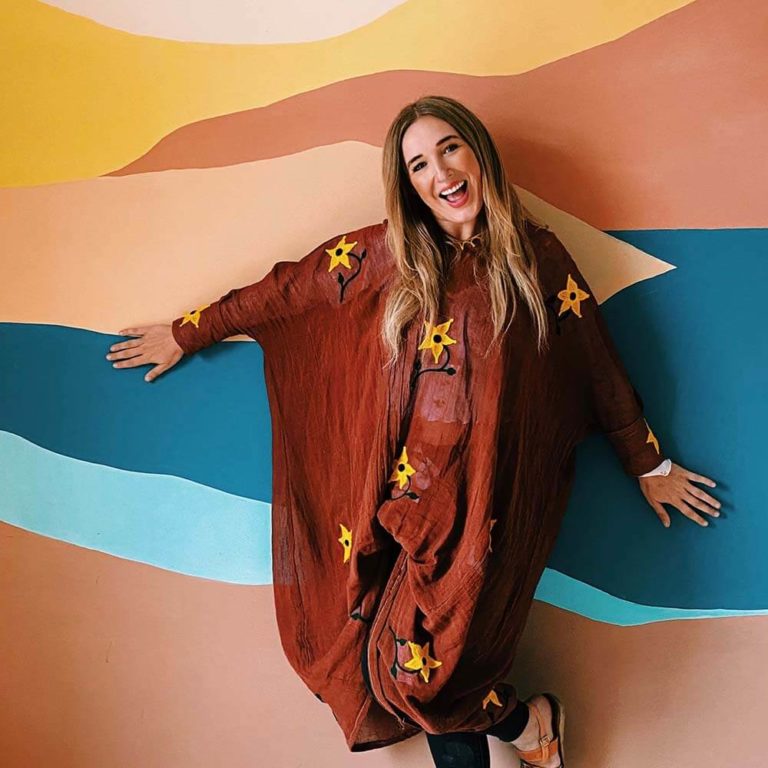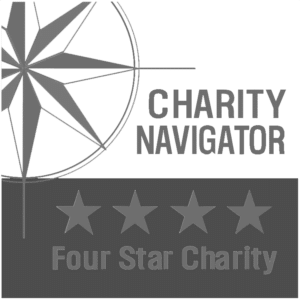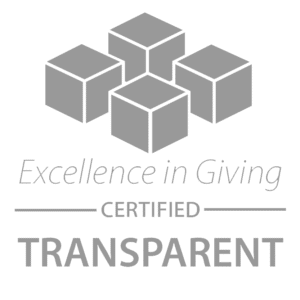You’re listening to Together by AGCI.
I’m Marissa Butterworth. Ethiopia has been on the news a lot lately because they are a country in crisis. Last year, they were hit by Covid than a locust infestation swept through the region, affecting millions of people across East Africa. In addition to all of that, they’re a country at war and in urgent need of assistance. Today, I had the opportunity to connect over Zoom with Angelyn Salyer, AGCI’s Ethiopia Program Director, and someone that I consider to be a dear friend and an amazing Ethiopian travel buddy.
She’s home for a week and agreed to hop on a call despite suffering from crazy jet lag. She literally just got home. Angelyn moved to Ethiopia this past summer to assist in opening our Ethiopian child advocacy center in the capital city of Addis Ababa.
Amidst so much devastation, this home offers a glimmer of hope. And our team in Ethiopia and here in the U.S. have been working tirelessly these past couple of years to make this a huge success. Listen in and get an update on all things Ethiopia.
How are you doing? Yeah, I’m I’m doing pretty good. I like you said, I just got in actually yesterday. It’s a quick trip back home to take care of some things, but excited to be back in Ethiopia after about a year and a half with Covid and all the travel restrictions.
So. Man, it’s great to be back and I can’t wait to go back. So very excited. Well, I’m so excited to be able to talk to you and hear more about everything. And we just appreciate you like even just coming on here.
Can you just share a little bit from your time that you’ve spent there about what the current climate is right now in Ethiopia? Yeah, that’s a great question. It’s the current climate in Ethiopia right now is I will I will just say it’s a bit different than how it’s been historically.
There’s, as you mentioned, a lot going on in the country, and it has just resulted in me. And I don’t even know the right word to say, but probably just this complex feeling that arises when you’re there and kind of not just hearing the news from afar, but seeing it all in person.
And yeah, I mean, there’s there’s obviously a lot of hope for peace in the coming months and years in Ethiopia. But there’s a lot that is being worked through right now. And the climate’s just a little bit a little bit rough at times.
Yeah. Yeah. I mean, and I think that everyone expects that to a certain degree like that there. That’s why we’re in that country. Have you noticed a difference from the last time you were there, which was with me back in October of 2019?
Can you share is there a difference? Especially after the recent elections and like the overall outlook of people in Ethiopia? Absolutely. Yeah. The tone I mean, when we were there back in 2019, there was a new prime minister and the tone was a little bit more uplifting.
And just with all of the recent events, it’s just, you know, there’s so much. Like I said, there’s so much we can’t see from the ground over here. And and so I feel like the tone has just shifted a little bit.
And not to say that there’s not hope anymore or whatnot, but it’s just kind of destabilized some of the political relationships. Obviously, families are at risk of going deeper into poverty just with the lack of resources available right now.
So overall, I would say that there’s obviously still I mean, the culture there is just incredible. People are so kind and they give you the shirt off their back at any moment. But there’s still there’s just a fear of the unknown, I think is I guess the best way to put it is just a little bit of
a fear of what this could do long term relationally to just communities and Ethiopia and the country in general. Yeah, well, so many people went on and gave toward our emergency relief campaign that we did for Ethiopia last month.
What has that specifically done for the people of Tigray right now? Like and that’s the northern region of Ethiopia, and we serve kids in that whole area within our sponsorship program. How have we so far been able to, you know, help the people of Tigray?
Absolutely. Well, for those who don’t know. That’s obviously the location of where most of the the situation in Ethiopia is occurring with the war between the federal government and the Tigrayan People’s Liberation Front, the TPL. And so that’s where that conflict has been primarily happening over the last six months or so since about November, and has been
thankfully able to be present, integrated for a number of years. We used to facilitate adoptions, as you know, out of that region, and then continued to stay in that region to see what we could do about more deeply impacting vulnerable children and families.
So we do have a longstanding relationship with a lot of the women’s and children’s affairs offices and local community worried offices, as they’re called, in that region. And we’ve been actively facilitating sponsorship support there for many number of years.
I want to say seven or eight years now doing sponsorship support and targeting the most vulnerable children and families. So once this once this conflict happened, of course, it was incredibly destabilizing to the to all of the infrastructure there on the ground.
So all of the local offices, all of the families that receive support, and especially the communications blackout made it difficult to. We do have a staff member up there who’s been continuing to work hard on making sure that we’re able to continue support.
But the communications blackout has made it difficult. And just with some other infrastructure issues, it’s yeah, it’s just been a little bit difficult to continue the work in the same way that we have been over the last few years.
However, all of that continued support from our sponsors, the emergency relief fund that we were able to receive, an overwhelming response from our donors and supporters, which has been just amazing to see the hearts for Ethiopia in a time of crisis like this man.
I mean, we just I think I can speak on behalf of the team in Ethiopia to say that we are just so grateful for that. And that’s gone a long way. We’ve been able to we have been able to distribute a lot of that support on the ground in Tikrai.
And so even though there’s still this crisis happening, just last week, we were able to give that support and facilitate that support to dozens of families who really need it the most there, who have been impacted by violence and famine and into just a number of issues.
So we’re so grateful for that support and we can’t wait to the next. Like I said, we do have a staff member up there who’s still actively working on the ground each and every day communicating with all these.
Amazing. Yes. Yeah. Teressa Torres is just an incredible person who cares deeply for all those families. And we’re doing what we can to to remain steadfast and reaching them. Yeah. And our commitment and I mean, Ethiopia is such an interesting place and beautiful place, and it’s primarily agricultural.
You know, they they rely on that for their food and jobs. And with all of the hard things that we’re seeing in Ethiopia, obviously, like there’s famine, there’s job loss, they’ve been hit by Covid, but they don’t have the tests and they don’t have, you know, the vaccine readily available.
There have been so many things piling up, but I feel like we do have a reason to be hopeful right now. And it is because we are finally on our end able to open the AGCI, child advocacy home in Addis Ababa, which is the capital city of Ethiopia.
And it’s something that your team on the international team have been working on. You guys have been working on it for years. And ah, Ethiopia team. This is something that’s been a long time coming. They’re the most incredible group of people and they love so well and so deeply.
And I know they’ve seen this need for a place for people to call home for a little bit while they find healing. Will you just share a little bit about the child advocacy home and why we are hopeful and why it’s so important right now?
I would be happy to, as you mentioned, that this child advocacy center has been really a long time coming for AGCI. We the last few years. And, of course, we’ve been continued to see President Ethiopia ever since the closing of international adoption and a variety of ways intervening for vulnerable kids and families.
But these last couple of years, we really took a step back and challenged ourselves to think how we could truly impact the most vulnerable population in Ethiopia and really felt that God was calling us to not only intervene for the one and for the and for the one child, which we will be doing at this home.
And I’ll explain a little bit more about that, but also for the many and to see generational change and impact. And this home, we’ll do both of those things. I’m truly confident and we’re so excited. Like I said, we’ll be launching this child advocacy center in the capital city of Addis Ababa.
And really the goal of this home is to provide a new model of care that isn’t seen in the Ethiopian government or really anywhere at this point for reunifying children who have been separated from families. And it’s estimated that there are about 600000 children living on the streets and in Ethiopia, 100000 of them in Addis Ababa alone
. But these girls that we’ll be working with, they’re kind of the hidden faces of this population. They they really are. They’re not you don’t necessarily see them when you’re driving down the road. They’re often sent into the city by their families to find work out of desperation, out of poverty, only to come to the realization that there
is no work. And most of these girls end up working and living as house servants, being abused, being trafficked. There’s just a number of traumas that these girls face. And so our goal with this home is to we’re going to we’re going to be providing this new model of care in five different ways.
We call it our five PS here and AGCI. And ultimately, this home will prevent children, like I mentioned, from living in institutions or on the streets by reunifying them with their families. So we’ll identify their families if they have biological families and then work toward a reunification plan for successful reintegration back into family care while they’re in
the home. We’ll be providing a safe, holistic care home environment for these children. As I mentioned, they have all gone through significant trauma and stressful experiences in their time separated. And so we’ll be using the principles of tbe RYH to heal children and prepare them to reenter family care, while also simultaneously working with families to prepare them
for that reintegration as well, so that they understand what their children have have really experienced while being away. And so we have a full team that will be trained in Tiberium Principles. All of our staff in this home will be using this principles on a day to day basis.
And we’re so excited to be really building that into the culture of this home that we’ll be placing children. Like I said, back into family care. And when reunification isn’t possible or maybe when it isn’t safe, we’ll be working with local offices to place children into to local, adoptive or foster care families when reunification isn’t possible and
then preparing older children. So there’s going to be this population of older girls who maybe have been separated for a number of years and can’t re reintegrate back into family care. And so we’ll be working to prepare them for that transition back into community with job training, with education and working on a reintegration plan for those older
girls. And then the last one, which almost is one of the most important pieces, is the policy piece. We are blessed to have a longstanding relationship, our long standing relationships in Ethiopia with the local Ministry of Women’s and Children’s Affairs at the local regional level, but also at the federal level.
And what we would love to see is to create policy that can scale this model so that we can replicate this all over the country and show that this is how we can truly make generational change for the most vulnerable children in Ethiopia, and do that by training local leaders to replicate the work, to scale, to impact
these kids and families. So we’re really excited about all these different areas and feel that we’re we’re well equipped DGCA at this point to to to do that. We’ve seen all of our work kind of explode in Colombia, and now we’re taking this model to Ethiopia and we can’t wait.
I’m so excited. I really this model is incredible to me because AGCI, we’re not a huge organization. We’re not a relief organization per se, but we’re really good at doing this. And and my favorite part is that we take this and we give it to the government and they can replicate that.
And so when we see when we talk about this one home that we’re starting, it’s like, oh, well, is that a drop in the bucket? Like what? When you’re saying there’s 600000 kids on the street. But the goal would be that we do this really well and we take this model and we give it to other to
the government to help replicate all over the country so that we can get these kids home. And that just blows me away. And beyond getting the kids home like it makes me excited because we’re a part of healing the trauma that they’ve been through.
And I think that’s where it like comes right down to, is that there’s just such a huge they’ve been through more than we can even understand. And so are Ethiopia team will be working on that that end of things and and they do get it and they understand and there’s so much beauty in that.
And I just I just think that part’s the most incredible of the most exciting to me, because obviously we both love the people of Ethiopia. And Ethiopia is such an incredible place. Like I want to I want to mention, of course, they have all of these things that have hit them really hard over the years.
And there’s so there are so many dynamics to that. But the people of Ethiopia want better things. They just, you know, have struggled through the years. It’s not that they don’t want good things for their families and they don’t want good things for their children.
They do so for us to be able to have built this relationship with them and have some ways that we can come alongside them in partnership and and help with what we know. And then, you know, they can take this and built this to be their own thing, just like we’ve done in Colombia.
Like that’s just to me. That’s huge. I agree. I agree. I will just say that you said a word that just stands out to me so much, and that’s relationship. Yes. I feel like the people of Ethiopia are so good at that.
We talk about tebi principles connecting, correcting and empowering and connecting. They do that so well already. Yes. Relationship is huge. And that’s really why we wouldn’t be I would never be where we’re at in Colombia and Ethiopia, wherever we’re without intentionally crafting and building relationships and empowering local leaders.
And that’s why we’ve been able to have an impact in these countries, is because, as Lisboa had one of my favorite authors, one said, the goal is not for people to be the hero of someone else’s story, but for the people because of their own story.
And when we can get people to believe in the power of healing and change, and when we can give tangible tools for that and invite people in to see that change can be made. And that’s when we see generational impact.
It’s not just a Band-Aid. We won’t see change overnight. This is deep, hard work. And this reunification and this child advocacy center is going to be hard work. But we know that our local staff on the ground, who really is who really are the pillars of this work, they believed to be they believe in the power of
family. They believe in changing Ethiopia. And they’re going to do that. And it’s it’s only when we believe in them and when we can empower local leaders to do this work where we’ll see change. We’re not going to see change if we step into a country and just share our beliefs and our Western style of doing things
like. Exactly. We’ve started hiring staff, which is awesome, and will be facilitating the full staff trauma, informed training for all of our amazing staff in the home. That’s going to be led specifically by our current Ethiopia staff, who two of them will be tby trust based relational intervention practitioners them.
So it’ll be a that’s incredible culturally appropriate trauma, informed training for all of the staff. And then we will be ready to launch shortly after. Amazing. I’m so excited. I’ve been watching and waiting and we’ve all been waiting for this for so long.
And I think we felt like it was a gut punch when Covid hit. But I think it’s like God just has kind of known and it gave us other opportunities to get more people trained and and be even more ready and do this really, really well.
So as we move forward, will definitely be updating our listeners. We’re going to talk to you again after the home opens and hear how everything’s going. But I think that there are a couple of ways for people to become involved in this home.
And I know there are so many people that love Ethiopia as much as we do. And I just want to first off, mention that we need your support. Like if you are passionate about Ethiopia and seeing change in that country, you can go on and contact us.
You everything will be you know, we’ll have everything linked. And you can give toward this home and toward keeping it open and being the best place for these young girls to come. But how can we also be praying right now and jaulin as we’re nearing the opening, like what can we pray for, for Ethiopia?
What can we pray for? For the home? Yeah, I think you hit the nail on the head there. There’s we can use individual prayers for our team, but also for the country as a whole. Just for us, for our team specifically, man, they just work day in and day out.
And they they’re just incredible. They they want to see this home and it come to fruition. And so they’re willing to do they’re willing to work long. Some days, weekends, if needed, I mean, we just we could use some prayers for just continued strength and perseverance as we enter into this final stretch.
It’s all very, very exciting. But as you know, there’s a lot that goes into just each and every piece and every detail and every program and every, you know, furnishing plan and budget. And I mean, there’s just there’s a million little things, but we’re nearing the finish line.
But I would just ask for prayers for our team specifically on the ground doing that work day in and day out. OK. And as Ethiopia, like you said, Ethiopia as a whole, I would just encourage everyone to just be keeping this beautiful country at the forefront of their, you know, prayers and thoughts.
There’s so many beautiful things, so many beautiful people in Ethiopia. But like we mentioned, there’s just there’s some really complex issues at hand. And I mean, there’s over 80 languages that are spoken in all of you. You can imagine the different tribes and the different opinions and all of the, you know, the various issues at hand.
But, you know, there’s there’s still so much hope. And I would just pray for for peace and for resolution and for God’s hand in it all, which we all know it is. But we know that there’s better days to come.
Yeah, it was I believe it. I think I believe that there are better days to come for Ethiopia. And we will pray for peace and for the team and for you. Because, I mean, thankfully, you’re home for a hot second.
So we were able to get on Wi-Fi and you recorded this and then you head back and you’re going to be there for a while longer, right? Yeah. Well, I mean, a little bit to be determined, just. Well, we’ll see.
We’ll see. You know, given current situation. But yeah, the goal would be to I’m headed back early next week already on Tuesday, and then we’ll stay through the launch of the home. And probably as long as I’m needed there to kind of help continue to support the team.
But yeah, it’ll be it’s it’s so good to be back and back at Ethiopia and also back here for a minute. But yes. Yeah, I would want to love the prayers. So thank you, Merissa. Yes. We’ll pray for you.
Thank you for everybody listening to this right now. We really just appreciate you and the time that you gave to getting an update on Ethiopia. It means so much to all of us that all God’s children, both here in the United States and in Ethiopia, our team there, it just it means the world.
So thank you and thank you and Jilin for being here and taking the time when I know you’re jet lagged and like in the middle of the craziest time of your life. So I just really, really appreciate that you would even take the time to do this when you feel this way.
So I love you and I’m so thankful.
That was Angelyn Salyer, AGCI’s Ethiopia Program Director. Angelyn will be back in December to share more about the child advocacy center they’re opening. When we recorded this podcast, we hadn’t yet landed on the perfect name for the home, but we have one now that I get to share with you. It is officially called the AGCI and Tim Tebow Foundation House of Hope. We are so thankful to have the Tim Tebow Foundation partnering with us to make this home a reality.
Thank you for listening to Together by AGCI. If you liked what you heard, make sure to go on and follow us wherever you listen to podcasts. And we wouldn’t be upset if you took a second to rate or review us. If you’d like to read or watch even more stories and check out what we’re doing at AGCI, head to our website at allgodschildren.org and make sure you also follow us on Instagram at @allgodschildren. I look forward to sharing another story of hope the next time we’re together.










